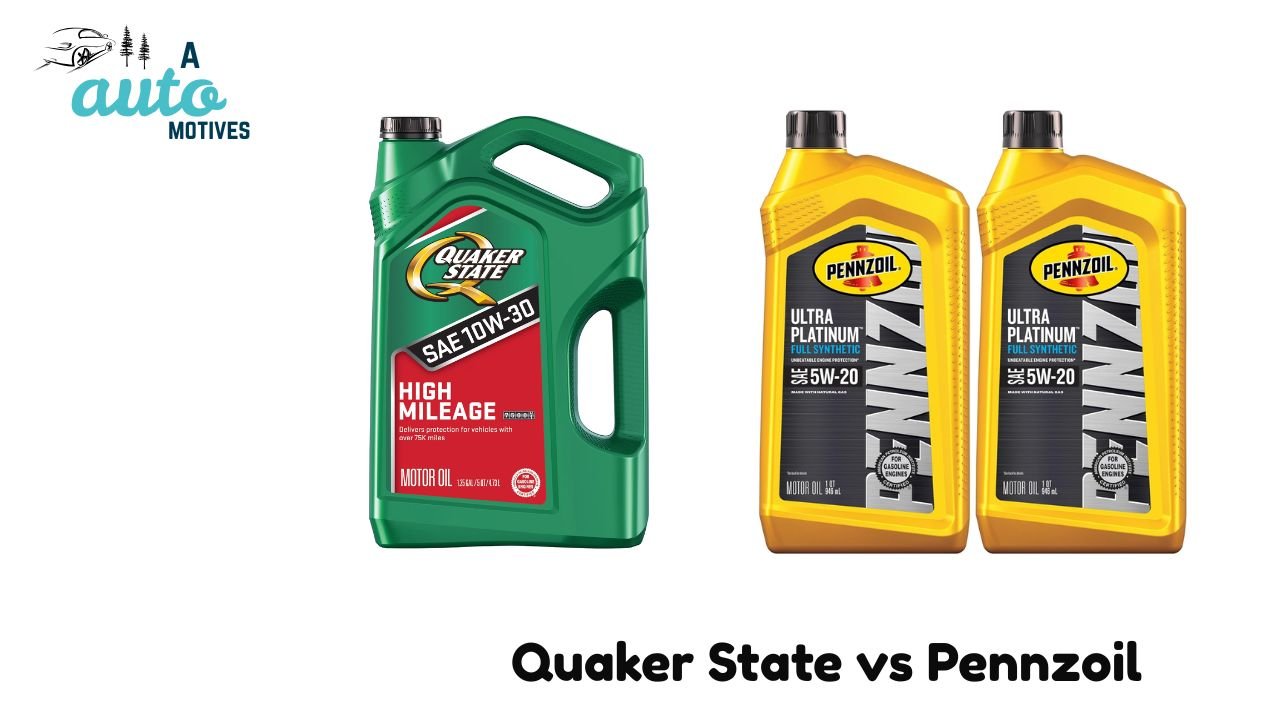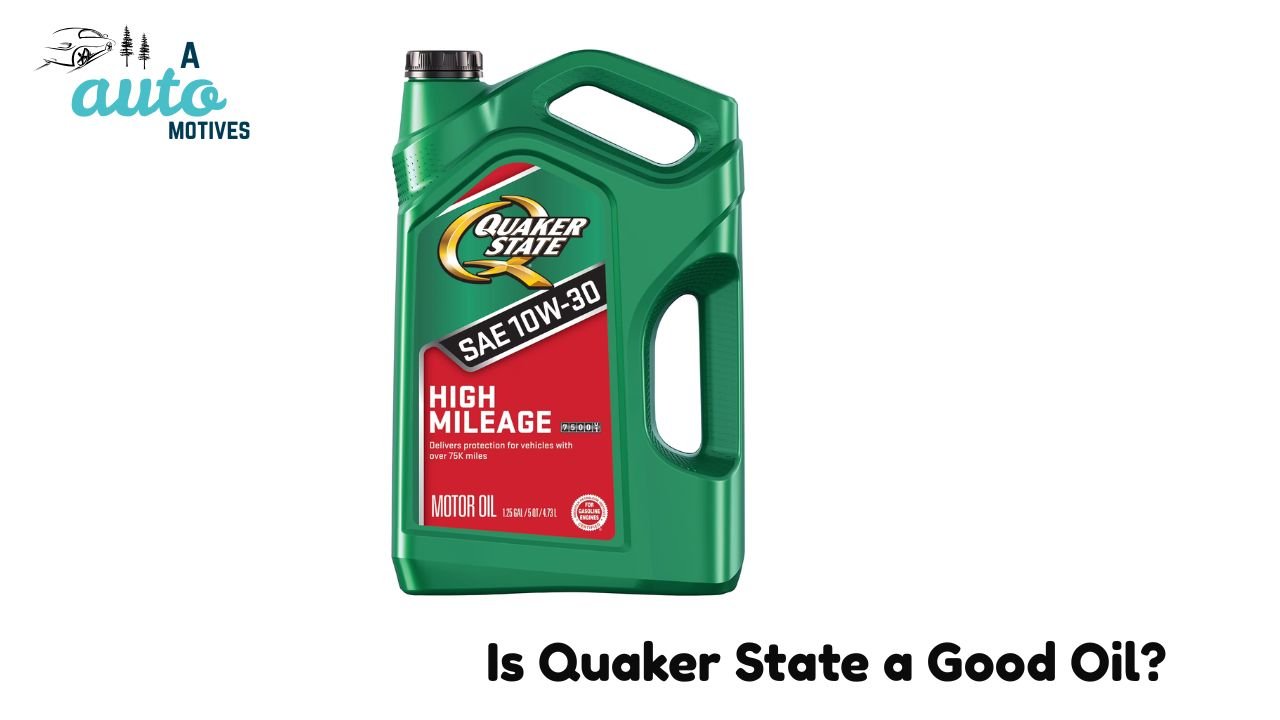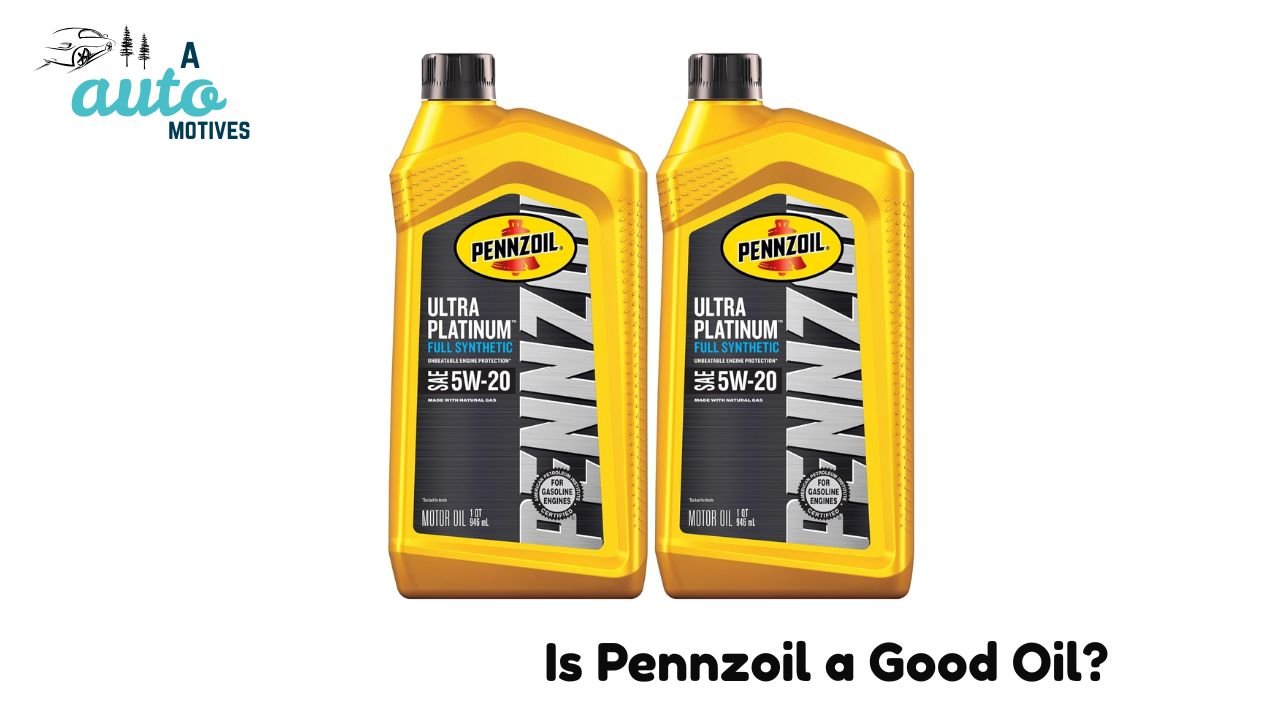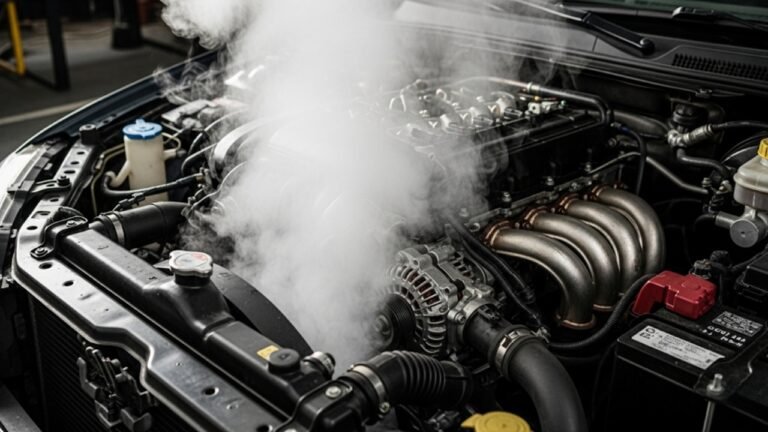Quaker State vs Pennzoil: A Brutally Honest Comparison

When it comes to engine oils, everyone has their favorite brand. Some drivers swear by Quaker State’s no-nonsense reliability, while others won’t pour anything but Pennzoil into their engines. But here’s the truth — both have loyal fans, both have proven track records, and both promise to keep your engine running smoother, longer, and cleaner. So which one actually delivers more for your money? That’s what we’re about to find out.
I’ve personally used both Quaker State and Pennzoil in different cars — from my old Honda Civic that endured city heat to my newer Ford F-150 that tackled freezing mornings. Each oil had its strengths and quirks. And in this brutally honest breakdown, I’ll share what I learned from real-world experience, not just marketing promises.
Let’s dig into it — because choosing the right motor oil can literally make or break your engine’s future.
Is Quaker State a Good Oil?

If you’ve ever changed your own oil, you’ve probably come across that familiar green Quaker State bottle sitting on a shelf. It’s not the flashiest brand, but it’s got a reputation for being dependable — the kind of oil that quietly gets the job done without shouting about it.
The first time I used Quaker State was on a freezing December morning in upstate New York. The kind of cold where you can see your breath inside the car. I expected the usual struggle — sluggish cranking, slow oil flow — but the car started almost instantly. That’s when I began to respect Quaker State’s consistency.
On long drives, my engine ran quieter and seemed more efficient. Even during city traffic, where the heat builds up under the hood, the engine stayed calm and didn’t lose performance.
Real-World Performance: My Experience with Quaker State
Cold Starts:
Subzero mornings can be brutal, but Quaker State’s 5W-30 full synthetic handled it without hesitation. My engine turned over quickly and quietly — no metallic whining or lazy starts.
Highway Driving:
During a summer road trip from Pennsylvania to North Carolina, I noticed smoother acceleration and slightly better fuel economy — not dramatic, but enough to notice after a few tanks.
Stop-and-Go Traffic:
City driving is the real test for engine oil. I expected overheating or noise, but Quaker State held steady. The temperature gauge barely moved, even after an hour of crawling through rush-hour gridlock.
Key Features at a Glance
-
Viscosity Grades: 0W-20, 5W-20, 5W-30, 10W-30, 10W-40
-
Types Available: Full Synthetic, Synthetic Blend, Conventional
-
Certifications: API SN Plus, ILSAC GF-6, Dexos Approved
-
Oil Change Interval: Up to 10,000 miles (full synthetic)
What Makes Quaker State Worth Considering
-
Solid Protection: Keeps metal parts clean and resists wear under stress.
-
Quiet Ride: Reduces engine noise and vibration.
-
Handles Temperature Swings: Performs well in both hot and cold climates.
-
Extended Oil Life: Synthetic versions can last longer between changes.
-
Improves Fuel Economy: Reduces friction, saving a few drops of gas per mile.
A Few Downsides to Note
No oil is perfect, and Quaker State isn’t either.
-
A Bit Costlier: The full synthetic options aren’t the cheapest.
-
Older Engines May Need Different Blends: High-mileage engines may prefer thicker, special formulas.
-
Availability: Certain grades are harder to find in smaller stores.
-
Best with Premium Filters: Cheap filters can reduce its benefits.
Who Should Choose Quaker State?
You’ll appreciate Quaker State if:
-
You drive long distances on highways.
-
You live in areas with extreme temperature changes.
-
You own a newer or turbocharged vehicle.
-
You want long oil change intervals with consistent performance.
If you’re a daily commuter who values reliability over marketing hype, Quaker State fits like a glove. It’s not flashy — but it’s tough, clean, and built for everyday drivers who just want their car to run right.
Final Thoughts on Quaker State
Quaker State is like that reliable old friend who never lets you down. It doesn’t overpromise — it simply protects, cleans, and lasts. While it may not have the premium feel of some high-end oils, its price-to-performance ratio is impressive.
If you want dependable performance without emptying your wallet, Quaker State is a brand you can trust mile after mile.
Is Pennzoil a Good Oil?

Now, Pennzoil is a different story altogether. It’s not just oil — it’s a bit of engineering magic. The brand is famous for its PurePlus Technology, which turns natural gas into synthetic base oil. That means the oil starts cleaner — and stays cleaner — than many others on the market.
I switched to Pennzoil Ultra Platinum on my newer car, and the difference was immediate. The engine ran quieter, idled smoother, and even cold starts felt effortless. Pennzoil seemed to have a lighter touch — flowing quickly through the system, keeping things fresh and friction-free.
Real-World Performance: My Experience with Pennzoil
Cold Weather:
Even during a harsh Midwest winter, Pennzoil’s synthetic blend handled cold starts perfectly. The oil thinned fast enough to circulate quickly, protecting the engine right away.
Long Highway Drives:
On a 1,200-mile trip through dry and humid weather, Pennzoil kept my engine cool and steady. I didn’t notice any drop in power, and fuel economy ticked up slightly.
City Traffic Stress Test:
In stop-and-go city traffic, where heat builds up, Pennzoil performed beautifully. The idle was smooth, and the engine never sounded strained, even during long red lights.
Key Features at a Glance
-
Viscosity Grades: 0W-20, 5W-20, 5W-30, 10W-30
-
Types Available: Full Synthetic, Synthetic Blend, Conventional
-
Certifications: API SP, ILSAC GF-6, Dexos1 Gen 2
-
Oil Change Interval: Up to 10,000 miles for full synthetic
Why Pennzoil Stands Out
-
Exceptional Cleanliness: Thanks to PurePlus Technology, sludge buildup is almost nonexistent.
-
High Fuel Efficiency: Less internal friction means smoother running and better MPG.
-
Smooth and Quiet Ride: Noticeably reduces noise and vibration.
-
Performs in Extreme Conditions: Maintains viscosity under both intense heat and freezing cold.
-
Extended Longevity: Can go 7,500 to 10,000 miles between changes.
Where Pennzoil Could Improve
-
Price Point: Premium oil comes with a premium tag.
-
Older Engines: It’s best suited for modern engines, not high-mileage or worn-out ones.
-
Availability: Certain grades can be out of stock depending on location.
-
Filter Dependency: To maximize performance, you’ll need a high-quality oil filter.
Who Should Choose Pennzoil?
Pennzoil makes sense if you:
-
Drive long distances frequently.
-
Own a new or high-performance vehicle.
-
Face harsh weather — hot summers or icy winters.
-
Want fewer oil changes throughout the year.
If your goal is maximum performance and protection with minimal fuss, Pennzoil delivers that premium edge.
Final Thoughts on Pennzoil
Pennzoil is like the perfectionist of motor oils — smooth, refined, and reliable in all situations. The brand’s focus on cleanliness and performance shows through in every drive. It’s not cheap, but it’s built for those who want the best care possible for their engine.
Quaker State vs Pennzoil: The Real-World Face-Off
Here’s where the real debate begins. Both Quaker State and Pennzoil perform well, but they appeal to slightly different types of drivers. Quaker State focuses on affordable reliability, while Pennzoil emphasizes high-end performance and engine cleanliness.
When I tested both over several months, I noticed that Quaker State felt like a workhorse — steady, dependable, and simple. Pennzoil, on the other hand, felt more refined — smoother, cleaner, and optimized for modern cars.
Viscosity and Temperature Performance
Viscosity matters — it’s the oil’s ability to flow under various temperatures.
In my tests, Quaker State held up well in moderate climates, but Pennzoil flowed better in both extremes. On icy mornings, Pennzoil made cold starts nearly effortless. In desert-like summer heat, it resisted thinning out.
Verdict:
-
Quaker State: 7/10
-
Pennzoil: 9/10
Additive Quality and Cleanliness
Both brands include detergents, anti-wear agents, and friction modifiers. But Pennzoil’s PurePlus base oil starts with fewer impurities, meaning it needs fewer additives to stay clean.
Over time, Pennzoil kept my engine interior visibly cleaner. Quaker State did well, but after a few thousand miles, it didn’t maintain that “just-changed” clarity.
Verdict:
-
Quaker State: 7/10
-
Pennzoil: 9/10
-






